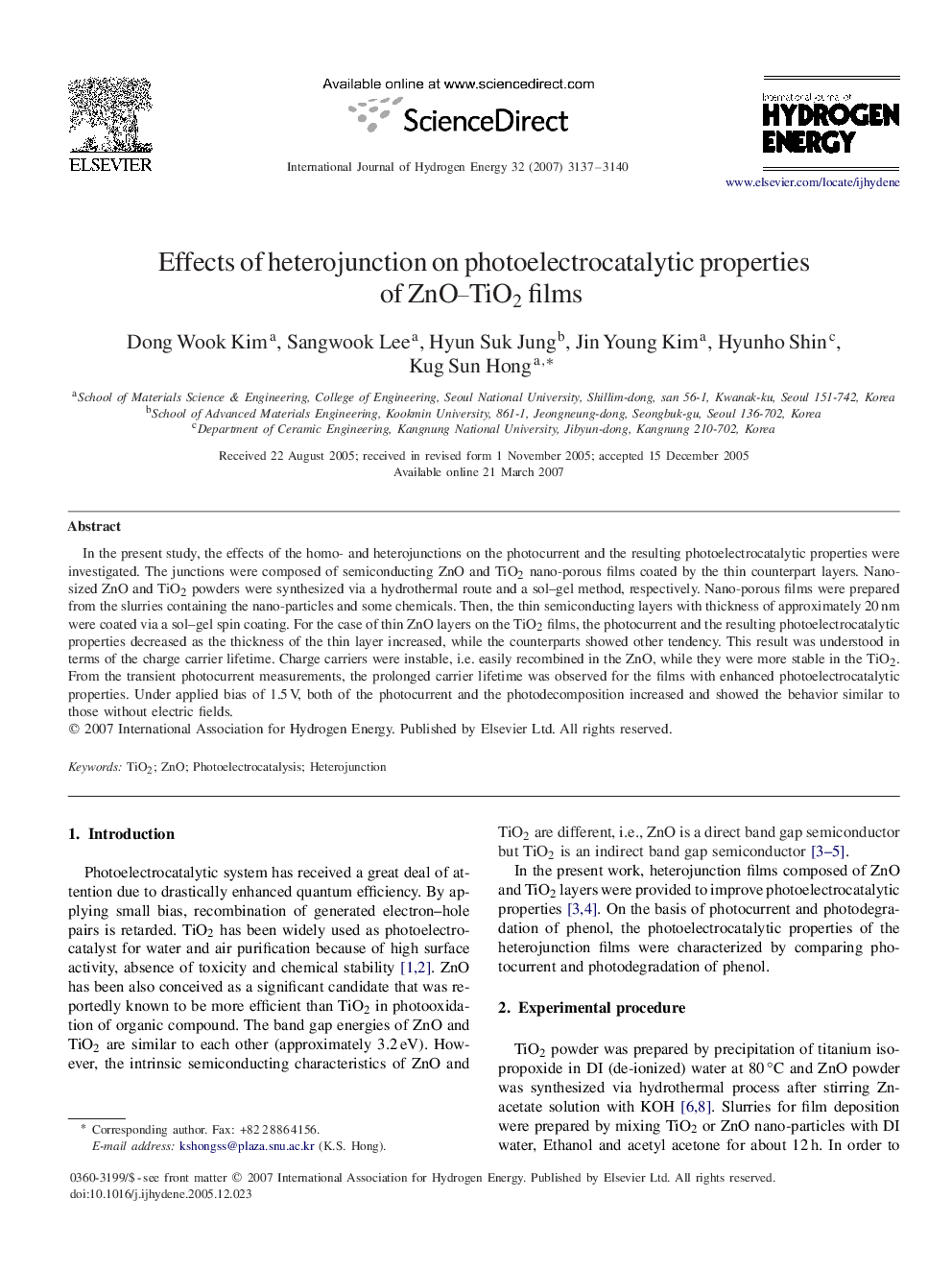| کد مقاله | کد نشریه | سال انتشار | مقاله انگلیسی | نسخه تمام متن |
|---|---|---|---|---|
| 1279648 | 1497669 | 2007 | 4 صفحه PDF | دانلود رایگان |

In the present study, the effects of the homo- and heterojunctions on the photocurrent and the resulting photoelectrocatalytic properties were investigated. The junctions were composed of semiconducting ZnO and TiO2TiO2 nano-porous films coated by the thin counterpart layers. Nano-sized ZnO and TiO2TiO2 powders were synthesized via a hydrothermal route and a sol–gel method, respectively. Nano-porous films were prepared from the slurries containing the nano-particles and some chemicals. Then, the thin semiconducting layers with thickness of approximately 20 nm were coated via a sol–gel spin coating. For the case of thin ZnO layers on the TiO2TiO2 films, the photocurrent and the resulting photoelectrocatalytic properties decreased as the thickness of the thin layer increased, while the counterparts showed other tendency. This result was understood in terms of the charge carrier lifetime. Charge carriers were instable, i.e. easily recombined in the ZnO, while they were more stable in the TiO2TiO2. From the transient photocurrent measurements, the prolonged carrier lifetime was observed for the films with enhanced photoelectrocatalytic properties. Under applied bias of 1.5 V, both of the photocurrent and the photodecomposition increased and showed the behavior similar to those without electric fields.
Journal: International Journal of Hydrogen Energy - Volume 32, Issue 15, October 2007, Pages 3137–3140